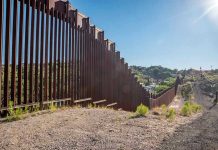
President Trump’s proposed military deployment to Chicago has ignited a fierce debate over federal power and local autonomy.
Story Highlights
- The Pentagon, under Trump, plans to deploy National Guard troops to Chicago.
- Governor Pritzker and Mayor Johnson strongly oppose the move as unconstitutional.
- The planned deployment comes despite falling crime rates in Chicago.
- Local officials are considering legal action to block the deployment.
Trump’s Military Plans for Chicago
President Donald Trump, as part of his aggressive stance on urban crime and immigration, has directed the Pentagon to prepare for a potential deployment of thousands of National Guard troops to Chicago. The move, which could occur as soon as September 2025, aims to address issues like crime, homelessness, and undocumented immigration. However, this has sparked a significant backlash from Illinois Governor JB Pritzker and Chicago Mayor Brandon Johnson, who view it as an unconstitutional overreach of federal power.
Despite the proposed deployment, Chicago has seen notable reductions in violent crime rates in 2025, with homicides down 30%, robberies down 35%, and shootings down nearly 40%. This context raises questions about the necessity and timing of such a federal intervention. Local officials argue that the deployment undermines state and city autonomy, potentially setting a precedent for future federal interventions in local law enforcement matters.
The Legal and Political Landscape
The deployment of federal troops in U.S. cities is typically reserved for extreme cases such as civil unrest or natural disasters. The Posse Comitatus Act generally prohibits the use of federal military personnel for domestic law enforcement, with exceptions under the Insurrection Act. Legal scholars are debating the constitutionality of President Trump’s directive, as it may not meet the criteria for these exceptions.
Governor Pritzker and Mayor Johnson have indicated their intention to explore legal avenues to block the deployment. They emphasize the importance of upholding constitutional protections and preventing federal overreach. The courts will likely play a crucial role in determining the legality of the deployment, which has yet to be confirmed by official Pentagon or White House statements.
Potential Impacts and Reactions
The proposed deployment has stirred political tensions between federal and local governments. If carried out, it could lead to legal battles and heightened community anxiety in Chicago. Residents, particularly from marginalized communities, may feel the impact through increased fear or mistrust of government actions.
Economically, the presence of troops could disrupt local businesses and tourism, while politically, it may intensify partisan divides. The move has implications for Trump’s political standing, potentially influencing the dynamics of the 2026 election. Civil rights organizations are likely to challenge the deployment, fearing a chilling effect on civil liberties and local governance.
Sources:
Block Club Chicago (August 24, 2025)
ABC7 Chicago (August 24, 2025)









